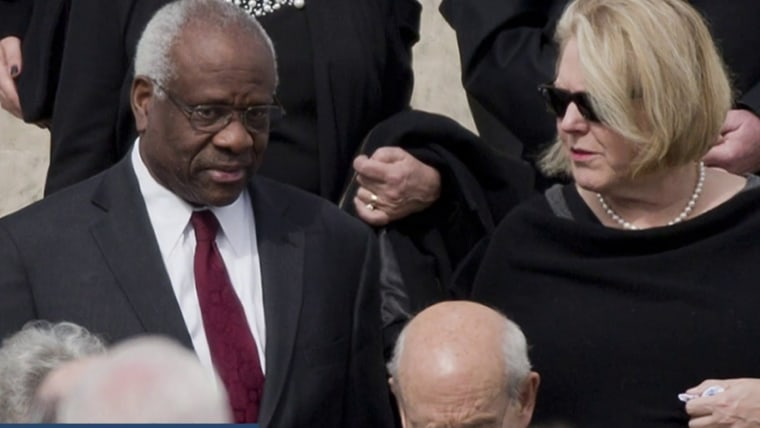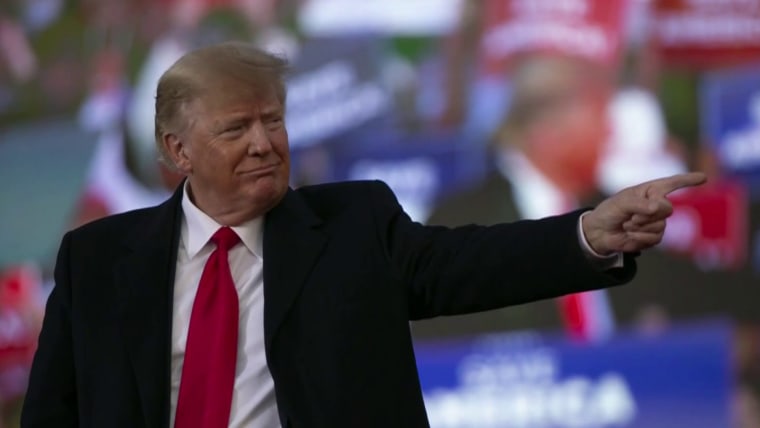Former President Donald Trump is not a Nazi. He is not, nor has it been reported that he has ever been, a member of the National Socialist Party. He also is not, in fact, some sort of genetic copy of Adolf Hitler. To misappropriate Dickens: "This must be distinctly understood, or nothing wonderful can come of the story I am going to relate."
You see, Trump’s lawyers sued CNN alleging defamation in a Florida federal court Monday. The main focus of their ire? In reporting on their client’s ongoing lies about the 2020 election, CNN has made use of “persistent association of the Plaintiff to Adolf Hitler and Nazism.”
“When a public official, or political candidate, is likened to Hitler, it is defamation per se as the statement imputes a characteristic or condition incompatible with the proper exercise of that public office,” the filing argues. “CNN published these defamatory statements with actual malice in that they knew the association of the Plaintiff’s character with that of Hitler was false, defamatory, and inflammatory or they published the statements with reckless disregard for their truth or falsity.”
While filing a litany of grievances masquerading as a lawsuit may satisfy Trump’s need for revenge, it feels like a grave mistake here. In asking the court to say definitively that it is unfair to compare Trump to Hitler, he has opened the door for the courts to reach the opposite conclusion.
In asking the court to say definitively that it is unfair to compare Trump to Hitler, he has opened the door for the courts to reach the opposite conclusion.
But before we deal with that likelihood, let us first address the claims and arguments that Trump has forced his lawyers to sign their names to. First, the suit lists five instances when CNN aired comparisons between Trumpism and Nazism. Three were from when Trump was president, a public figure for whom the bar for defamation is extremely high. Those three were 2019 interviews with public figures who made the comparison, including House Majority Whip James Clyburn, D-S.C.; singer Linda Ronstadt; and a psychiatrist whose hyperbole was — as the suit gleefully notes — rated “Pants on Fire” by PolitiFact.
Second, the filing argues that CNN’s use of the term the “Big Lie” is itself defamatory. Trump’s lawyers rightly note that the phrase is associated with Hitler. (Its origin is an apocryphal quote attributed to Nazi propaganda minister Joseph Goebbels: “If you tell a lie big enough and keep repeating it, people will eventually come to believe it.”) In this context, it refers to Trump’s (ongoing) insistence that President Joe Biden’s victory in 2020 was the result of massive fraud and his demands that the election results be cast out.
That CNN would dare use such a phrase is outrageous, the suit alleges, as it has “not used it against other political leaders and previously criticized political analogies to Nazi Germany and to Hitler.” (A brief aside: They are so close to understanding the truth of the matter even as they argue the opposite.)

All told, Trump’s lawyers say they provided CNN with five examples of the term that should be retracted. That includes an opinion essay from Ruth Ben-Ghiat (who also writes for MSNBC) that argued the “Big Lie” was only possible because of Trump “unleashing a barrage of disinformation common in authoritarian states but without precedent in the history of the American presidency.” It also names three articles by CNN political analyst and blogger Chris Cillizza and a CNN broadcast where host Jake Tapper called out Trump’s “deranged election lies.”
(Another brief aside: The suit refers to Cillizza by his official title, rendered as “CNN Editor-at-Large” as though this grants him some special sort of power over a network’s coverage. It does not.)
This suit, Trump’s lawyers say, was made necessary because CNN refused to retract its claims. But as CNN made clear in its response letter to Trump’s lawyers, at no point did the former president's team bother to get into why the network’s anchors, analysts and columnists were willing to say that Trump was lying. Answer: Because he was lying and any attempt to counter that in court by putting those lies into a filing could have consequences for the lawyers who submit them.
Which brings us to the suit’s final argument: that CNN has allowed Democrats to doubt the validity of election results, especially after Trump’s win in 2016, without getting the “Big Lie” label, showing CNN’s political bias. The difference here, as I’ve noted before, is that when the Russia investigation concluded, Democrats stopped making wild claims that the facts couldn’t bear out. Speculation when evidence is lacking is not the same as continuing to repeat the same claims once there's proof that they aren’t true.
The weakness of their case isn’t helped by the fact that legal precedent is not on their side — the filing’s footnotes only cite 11 cases total. Five of them are cited in regard to filing in a Florida court; one is a defamation case that the plaintiffs lost; three of them are state-level cases from between 1946 and 1961 that deal with the defendant comparing someone to Hitler or the Nazis.
There are no recent cases among those Trump's lawyers cited that deal with a media outlet harming a public figure’s political future, as Trump’s lawyers are arguing CNN has done. Given the rather large number of examples where media reporting has tanked a political candidate, you’d think these legal eagles would have something to quote in their favor beyond a single CNN employee bragging during a secretly taped conversation.
All told, this is less a case of defamation and more a case of crying “they were mean to me.”
Instead, Trump’s lawyers insist that the court ignore the “actual malice” precedent that the Supreme Court set in New York Times Company v. Sullivan in 1964. Not because actual malice wasn’t present, they argue, but because “that standard does not—and should not—apply where the media defendant is not publishing statements to foster debate, critical thinking, or the ‘unfettered interchange of ideas’ but rather seeks to participate in the political arena by offering propaganda.”
It's ironic that they will have a harder time making such a case given recent precedent in a case brought against Fox News. A federal judge in 2020 ruled that Fox host Tucker Carlson and the network that airs him hadn’t engaged in slander because of the opinionated nature of his show. Many of the examples that Trump's lawyer cite in the filing are either outright opinion or clearly labeled analysis based on things Trump himself actually did.
All told, this is less a case of defamation and more a case of crying “they were mean to me.” It will not gain Trump the $475 million in damages he is seeking from CNN. And it has proved a window for people like me to remind Americans that Donald Trump does not want to have to prove in court that he’s not a threat to democracy.
While it would be extremely entertaining to see Trump’s lawyers try to convince a jury that their client and his actions have no comparison with the Nazis' rise to power, the odds that it gets thrown out like his suit against Hillary Clinton was in September are extremely high. And while I had fun reading through this train wreck of an argument, it wasn’t even the best pastiche of legal writing that I’ve read this week: The Onion did it better.

